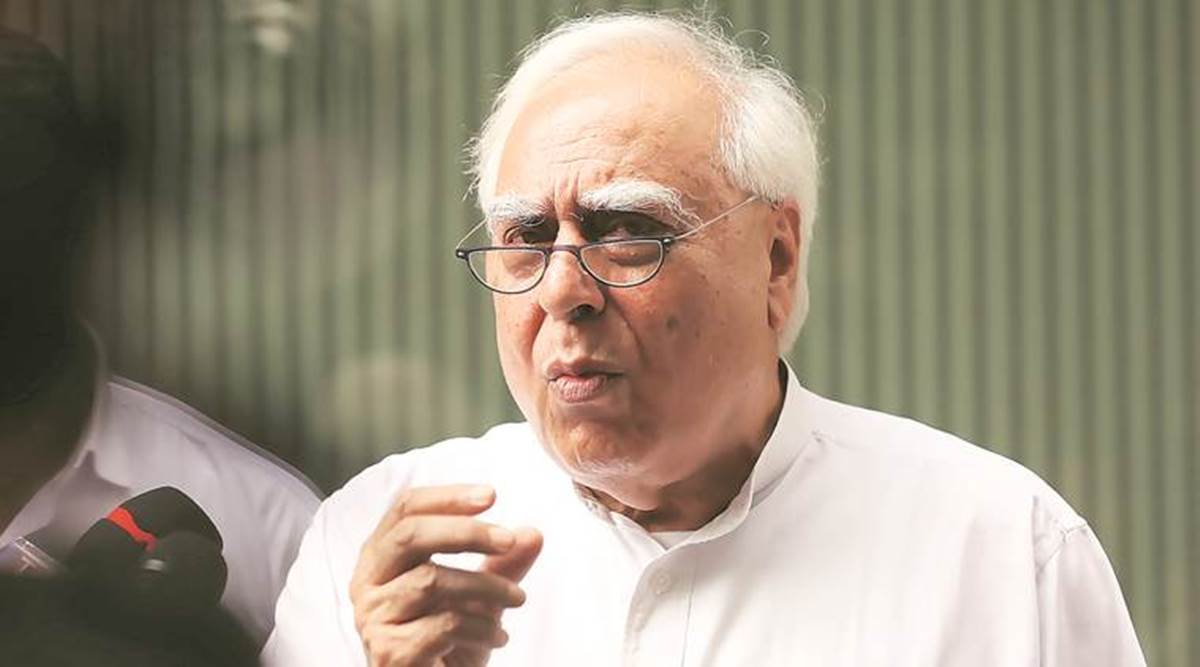 Kapil Sibal
Kapil Sibal Normally ideological differences and perceptions are and should be settled within the party. In most cases that is what we do and we try to overlook any transgression or explain it away as a consequence of the pressures of the daily routine of busy politicians. But when a recurring theme seems to be getting approval by silence, it becomes important to step in with a response.
I have two reasons to respond in the public space to a recent interview of my senior at the Bar, Kapil Sibal, on communalism. First, that it must not be thought to be the official position of the Congress and second, its seemingly objective posture rests the case conclusively. Of course there are reasons to keep one’s peace: I was a member of the committee that scrutinised the results of the four states where elections were held recently and we lost. Furthermore, if I believe we should restrict sensitive matters to party fora it would be inconsistent to speak out in public. But then, as I said, there is a serious danger of our ideology being undermined and we cannot wait till it is too late to preserve it.
My esteemed colleague has concerns about how things are inside the party. Others too have expressed their concerns. But that is a matter under discussion within the party. We will see the results in due course, but for the present, I can only say that the propositions are all somewhat simple and reductionist. But, one way or the other, it will be necessary to deal with the conundrum of communalism that has been so clearly underscored, and that, one way or the other, is thought to be the dominant cause of the rise of BJP and the decline of the grand old party.
It is important to put a caveat; the report on Assam, as indeed on the other states, has been confidentially submitted to our leadership and nothing that I say here and now must be taken to be the assessment of all the members led by Ashok Chavan. We expect our findings and recommendations to be considered with utmost seriousness, but we certainly cannot expect that our opinion shall prevail.
Sibal said that all communalism is bad, majority as well as minority. In a sense that statement cannot be faulted. But a closer examination suggests implications that I hope he did not intend and will quickly review. It is instructive to recall that India’s first prime minister, Jawaharlal Nehru, while addressing an open session of the All India Congress Committee in New Delhi in May 1958, said that the “communalism of the majority is far more dangerous than the communalism of the minority”. He reasoned that such communalism “wears the garb of nationalism”. He also added, “We have thus communalism ingrained in us and it comes out quickly at the slightest provocation and even decent people begin to behave like barbarians when this communalism is aroused…”
The extent of communalism apparent in our society might have expanded disproportionately in recent decades, but there is nothing about how our national life has progressed (sic) that no longer validates the insight of the great Nehru. Successive defeats in elections cannot persuade us to dump the ideological ballast of Nehruvian vision, and if that is the purpose of reform in the working of the party then we are in for worse times. Embrace Nehru closer rather than drift away to rehashed right-wing propositions that we think have brought success to the BJP. Politics is certainly about winning the electoral game, but not by jettisoning the rules that attracted us to the game in the first place.
There is something to be said about suspect alliances like ours with the AIUDF in Assam and the Left bringing in the ISF into the Mahajot in West Bengal. The two are poles apart in genesis, interdependence, perception, sustainability, secular credentials and outcomes. Since the AIUDF is being blamed for our defeat due to polarisation, let us put that anxiety to rest quickly. Assam is usually described as a 65-35 population mix of Hindus and Muslims. Let us for argument accept that the election was polarised due to the alliance. But the BJP got only 33 per cent of the 65 whilst the Congress got 30 per cent (only 20 per cent of that was Muslim). As I said, reductionism might do a trick or two on TV channels and social media but has little to offer to the real world of politics.
We have our task cut out to win back the affection and allegiance we enjoyed for decades. But we will not be able to do that by putting ourselves in a virtual reality rather than a virtuous one. While we still have our alliance in Assam, it does not behove us to blame them for the defeat. Muslim outfits have been integral to the Congress since the national movement and shaped the contours of our politics. We cannot suddenly suffer amnesia and be guided by the BJP to make forced errors. The future of India’s inclusive, liberal politics depends hugely on how we respond in countering majoritarianism, not in making minorities invisible.
The writer is senior Congress leader and former external affairs minister
- The Indian Express website has been rated GREEN for its credibility and trustworthiness by Newsguard, a global service that rates news sources for their journalistic standards.

